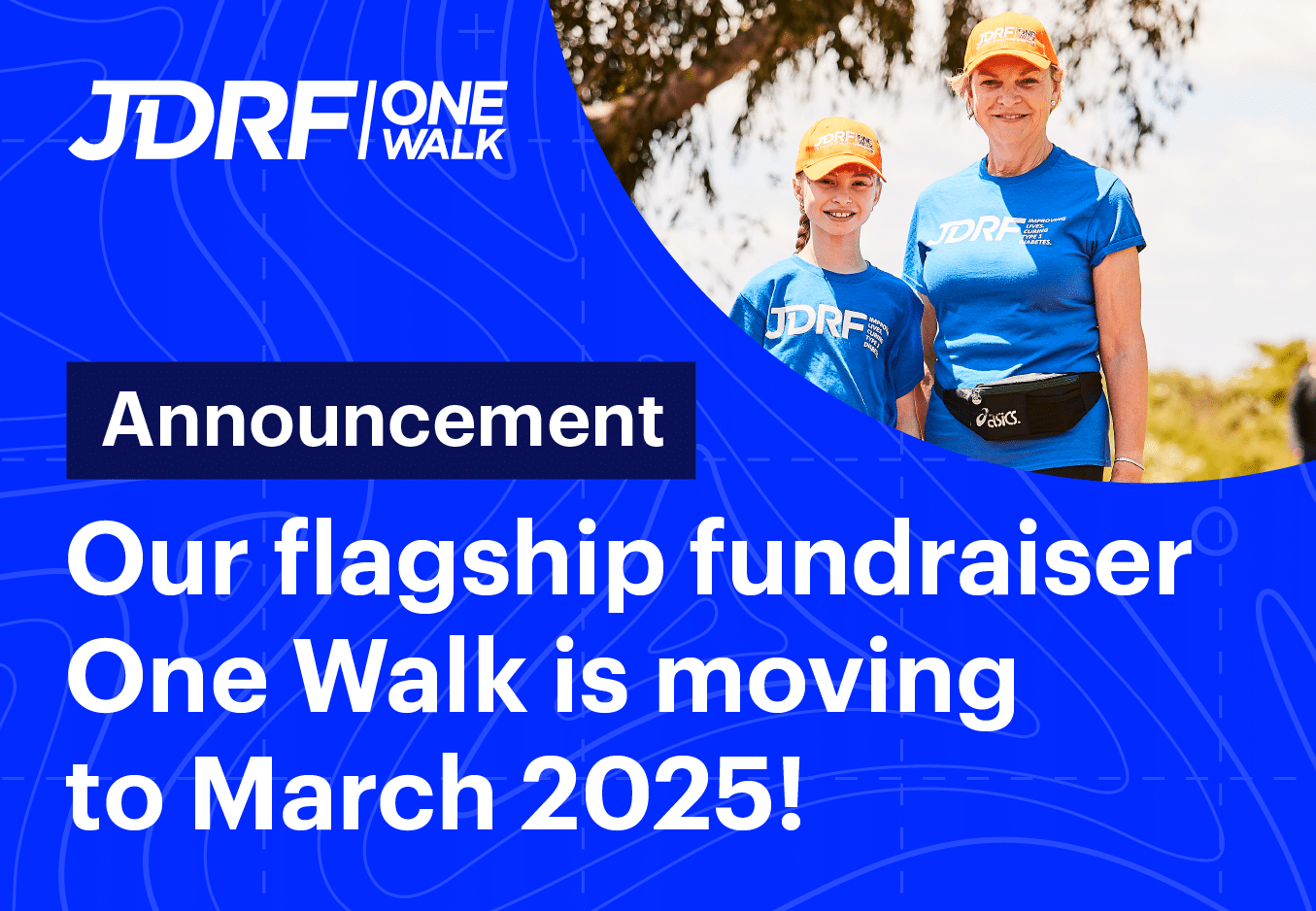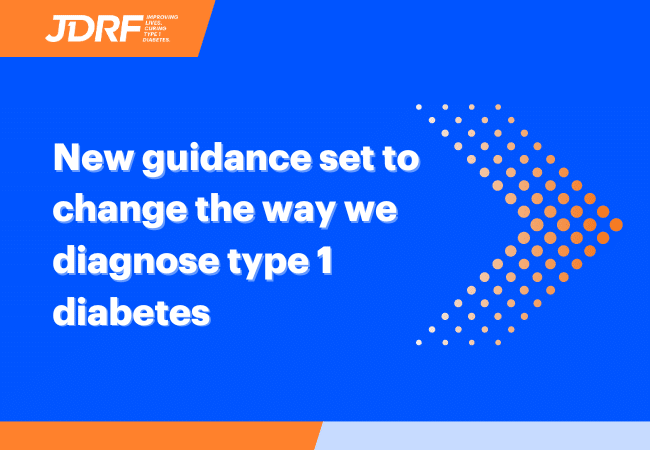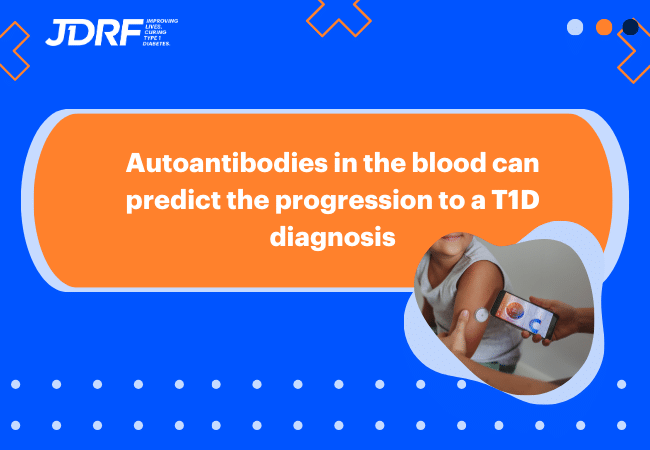Australian researcher internationally recognised for achievements in type 1 diabetes screening
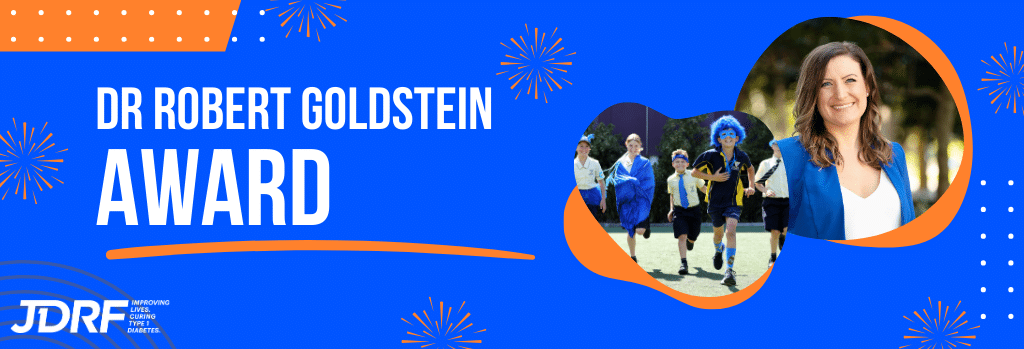
We are proud to announce that Dr Kirstine Bell from the Charles Perkins Centre at The University of Sydney has been awarded the 2023 JDRF Dr Robert Goldstein Award for her notable contributions to type 1 diabetes (T1D) research.
This is an internationally competitive award given to early career researchers who show great promise in T1D research.
Other awardees were Professor Colin Dayan for the JDRF David Rumbaugh Award for outstanding achievements that accelerate JDRF’s mission, Associate Professor Viral Shah for the Mary Tyler Moore and S. Robert Levine M.D Excellence in Clinical Research Award, and Professors Linda DiMeglio and Moshe Phillip for the George Eisenbarth Award for T1D prevention.
On behalf of JDRF Australia, congratulations to all!
What does Dr Bell’s research involve?
Dr Bell leads the Australian T1D National Screening Pilot funded under the T1D Clinical Research Network (T1DCRN). The pilot is comparing a range of simple screening options to identify the best method for detecting early stage T1D in all Australian children. This is essential as 90 per cent of those diagnosed with T1D have no family history of the condition and would not otherwise be screened.
The pilot is screening up to 9,000 children and infants for T1D genetic risk and/or the presence autoantibodies and hence early stage T1D. Autoantibodies are proteins found in blood which are a hallmark of the immune system attacking the beta cells of the pancreas in T1D and can be detected before someone is clinically diagnosed with the condition (known as Stage 3 T1D). In the pilot, if a child is identified as being in early stage T1D, their family is connected to a healthcare team for follow up. Read more about autoantibodies and the four stages of T1D here.
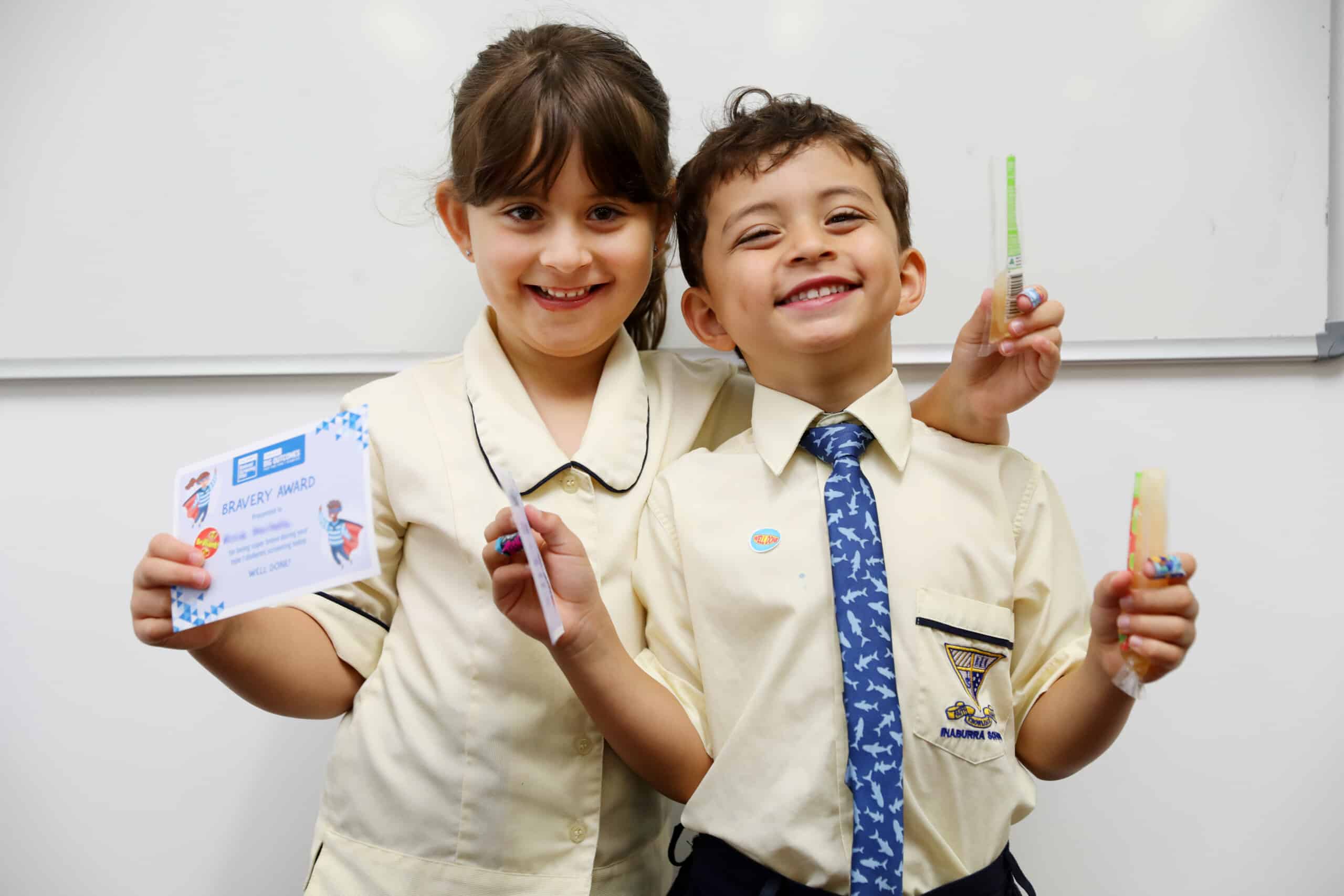
Two primary school students participating in the T1D National Screening pilot.
Dr Bell’s award also recognises her role in co-leading the development of clinical practice guidelines for screening of T1D in children and teenagers and her leading voice on the need for education and psychosocial support in early stage T1D clinical care. Her expertise in T1D screening and early prevention is now internationally recognised with representation at conferences, expert panels, and advisory groups.
JDRF is honoured to present this award to Dr Bell and celebrate her leadership in advancing type 1 diabetes research that has expanded the field’s understanding of the stages of T1D and the importance of screening and monitoring in early stages. Dr Bell’s insight and research is a core part of JDRF’s strategy to improve the lives of those at risk of developing T1D. Her strategic focus and innovation in T1D research will undoubtedly continue to have a profound impact on the T1D community globally. Dr Sanjoy Dutta, JDRF International Chief Scientific Officer
What will this mean for the diabetes community?
JDRF is committed to a world without T1D. The T1D National Screening Pilot is key to JDRF’s Screening research strategy, which hopes to see a T1D routine screening program introduced in Australia, so that every child at risk of developing T1D can be identified, medically followed up and offered therapies which can prevent the condition as they become available in the future.
Identification of early stage T1D and medical follow up has also been shown to drastically reduce diabetic ketoacidosis (DKA) at T1D diagnosis, a potentially fatal condition.
A nationwide roll out of a T1D screening program would make Australia one of the first countries to offer routine childhood screening for T1D.
About Dr Bell
Dr Bell is a dietitian, diabetes educator and Principal Research Fellow at University of Sydney, where she co-leads the Type 1 Diabetes Research node at the Charles Perkins Centre.

Dr Kirstine Bell with her award, joined by JDRF Australia Chief Scientific Officer, Dr Dorota Pawlak and JDRF International Chief Executive Officer, Dr Aaron Kowalski.
I am very grateful to JDRF to be receiving this award. I am constantly inspired by those living with T1D and by the passion of JDRF and the clinical and research communities. To be honoured with this award means the world to me and I look forward to the future where early detection is the norm and T1D no longer means a life reliant on insulin therapy.
Dr Kirstine Bell, Dr Robert Goldstein Award winner and lead investigator of the JDRF-funded Australian T1D National Screening Pilot
Read more about Dr Bell’s pilot here.
About the T1DCRN
The T1DCRN is the main driver of T1D research investment in Australia and has been bringing together the world’s leading T1D researchers for over a decade. It has been a catalyst for significant scientific advancements in projects like the T1D National Screening Pilot and is currently funded until the end of 2024.


